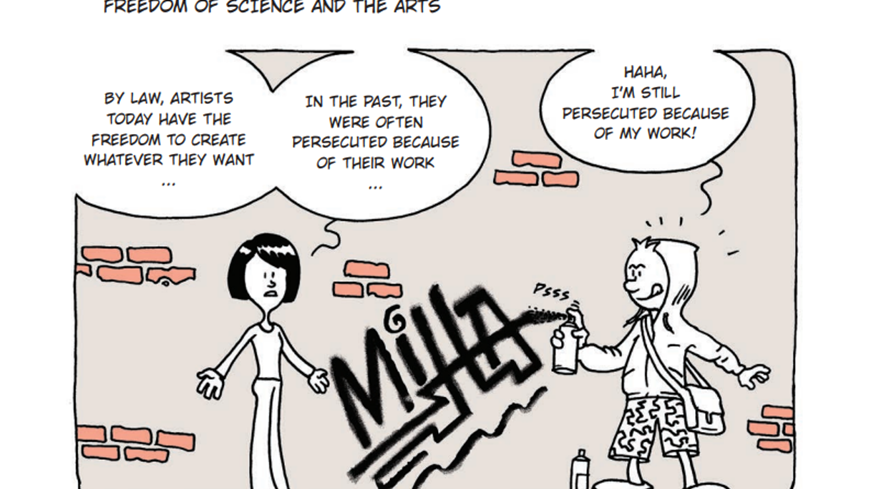The role of art in freedom of expression, and the limits to artistic freedoms in a democracy, were the focus of a round table event “Free to Create: Artistic Freedom in Slovenia and in Europe today”, organised by the Council of Europe’s Directorate of Democratic Participation and the Slovenian Ministry of Culture.
Article 10 of the European Convention on Human Rights guarantees the right to freedom of expression for all people across our 46 member states, including Slovenians. This includes artistic freedom, which is so often one of the first victims of autocratic governments. This seminar looked at how effectively this freedom is protected and highlighted the Council of Europe´s work in this field.
Part of the Slovenian contribution to the Council of Europe’s online exhibition “Free to Create, Create to be Free”, the event highlighted culture as the “soul of democracy” as a means to strong cultural policies and governance that include transparency, access, participation and creativity, respect for identity and diversity, intercultural dialogue and cultural rights, as the basis for respectful and tolerant living together in an ever-more complex world.
Highlighting the key role of arts and culture as powerful means for maintaining constructive dialogue in democratic and open societies, in 2020 the Council of Europe´s Steering Committee for Culture, Heritage and Landscape (CDCPP) launched a Manifesto on the Freedom of Expression of Arts and Culture in the Digital Era, in response to concerns about consistent and varied attacks on freedom of artistic expression in Europe, and to remind and encourage member states to uphold and protect this right.
Participants of the event included the State Secretary for Culture, Marko Rusjan, Director of the Directorate for Democratic Participation at the Council of Europe, Matjaž Gruden, President of the Slovenian Association of Writers, Poets and Publicists PEN, Tanja Tuma, author of the Report on Artistic Freedom in Europe at the Council of Europe, Sarah Whyatt, and three international artists Khaled Barakeh, Malgorzata Kazmierczak and Natalia Vatsadze.
Slovenia held this event in the same year that it has hosted a number of initiatives to celebrate the 30th anniversary of its membership of the Council of Europe: an exhibition of the Illustrated Constitution of Slovenia and a hybrid roundtable with a distinguished panel from the Faculty of Social Sciences of the University of Ljubljana. At the summer plenary session of the Council of Europe’s Parliamentary Assembly, President Nataša Pirc Musar addressed the participants and underlined the role of the Council of Europe as the “legal spine” of Europe - crucial to the preservation of human rights and the rule of law. “For Slovenia, joining the Council of Europe meant an important step towards its consolidation as an independent, sovereign state in the international community,” stated the Minister of Foreign Affairs, Tanja Fajon.





